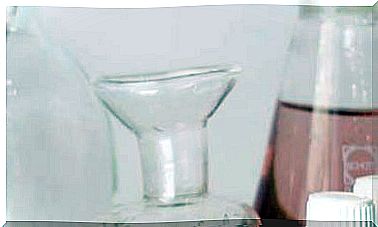The 10 Secrets To Living Healthy For Many Years
What are the keys to living longer and better? We present the ten keys that favor this balance and that include both physical and emotional aspects.

In the face of health and illness, there are two alternatives.
One is to believe that disorders appear primarily by chance, that little can be done to prevent them, and that if you have the misfortune to fall ill, you can always trust your doctor to find a solution.
It is an attitude that has its limitations, although it is logical in a culture where knowing how to use a computer is more of a priority than knowing how your own body works.
The other option is to recognize that health largely depends on lifestyle. It is true that the genetic factor and the personal constitution are important, but the daily habits can be even more so.
A healthy lifestyle depends on a number of factors closely related to the way each person decides to live.
The hours of sleep, food, physical activity, the way of relating to others and the attitude that is assumed towards life make it possible to lead a healthy lifestyle or not.
The World Health Organization affirms in The Ottawa Charter that “health is the result of the care that one gives to oneself and to others, of the ability to make decisions and control one’s life and to ensure that society in which one lives offers all its members the possibility of enjoying a good state of health “.
What are the characteristics of a healthy lifestyle? We have summarized them in the following decalogue.
1. Live with an optimistic attitude
Attitudes reflect personality and explain much of what happens to us in life.
The relationship with health is obvious: for example, a fearful and apprehensive person does not need to become physically ill to feel really bad.
Someone with a pessimistic mood may believe that everything is going to go wrong and fail to take steps to avoid misfortunes, including illness.
Similarly, people who are used to improvising find it difficult to follow a balanced diet and reasonable work and rest habits.
Experts say that optimism and a sense of humor are health-enhancing attitudes. Optimists tend to make better decisions.
According to Albert Figueras, professor of Pharmacology at the Autonomous University of Barcelona and author of Optimizing life (Alienta Editorial), optimists have a more balanced diet than the average, exercise more, rest and are more receptive to alarm messages that they come from the body. In addition, optimists know how to find the support of other people.
Other studies indicate that optimists have lower levels of stressful and inflammatory hormones and have a more effective immune response.
The vital attitude of a person is part of his defense system against disease. According to psychologist Martin Seligman, optimism is a natural and healthy attitude.
However, many people learn throughout their lives, and especially during childhood, to settle for the worst option. The good news is that just as pessimism is fertilized, optimism can be cultivated.
Seligman recommends being attentive to your own thoughts and as soon as a pessimistic one is detected, immediately replace it with another of the opposite sign. “I’ll get it” instead of “I won’t get it.”
Next you have to look for the arguments that justify optimistic thinking. There always are.
2. Eat more plant-based foods
The most effective measure to improve the health expectations of most people in the West is to substitute foods of animal origin for others of plant origin.
Excess protein and saturated fat – common in meat and dairy products – is the cause of inflammatory and cardiovascular diseases and certain types of cancer.
Instead, the vegetarian diet has been shown to reduce the incidence of these diseases and benefit overall health.
The whole grains provide energy along with fiber, minerals, vitamins and a significant proportion of protein. These are also found in legumes, nuts, and seeds.
The monounsaturated fats (olive oil, avocado) and omega-3 (linseed oil and walnut) are suitable to hold off cholesterol and inflammatory agents.
The fruits and vegetables are rich in vitamins, minerals, fiber and plant compounds with properties beneficial to fend off many diseases, especially those related to the action of free radicals.
3. Prefer the less denatured product
Products that only use natural, seasonal or artisanal or organic ingredients are preferable to those that use additives to artificially improve their flavor, color, texture and conservation.
Foods made with methods that respect their nature, such as extra virgin olive oil, are of higher quality than those handled with methods that denature them, such as margarine.
Almost as important as the choice of food is the preparation and the manner of eating.
The methods gentle cooking, as steam or low oven, produce a minimum loss of nutrients compared to fried or roasted, which may cause the occurrence of toxic substances.
Finally, the dishes prepared with love and consumed enjoying each bite, if possible in good company, feel much better.
4. Get well-being with movement
Exercise is one of the great pillars of health.
The lungs, heart and other vital organs need a regular dose of movement to keep fit, eliminate toxins and calories and not degenerate prematurely. Exercise stimulates all physiological processes.
Dr. Michael Roizen, a well-known popularizer of the benefits of physical exercise, points out that regular training prevents genes from being expressed that could otherwise trigger cancer, arterial disease or depression.
According to the WHO, half an hour a day of light walking is enough to obtain significant benefits.
Performing any sport is useful, but we must highlight those that are practiced outdoors, in contact with the sun, air, water and earth, which provide extra vitality.
Yoga and Tai Chi are quiet exercises, optimal for maintaining balance and flexibility, both physically and energetically and mentally.
There is a tendency to think of physical activity as a preventive measure that maintains muscle tone and helps control weight.
But its effects on the body are more extensive than you can imagine: muscles and bones need it to develop and stay in good condition.
Over the years, bone density deteriorates and in the worst cases, symptoms of osteoporosis appear .
Even women who have passed the menopause can avoid demineralization and increase the density of the skeleton by practicing some exercise twice a week.
5. Do not neglect rest or sleep
Working hours should be compensated with twice the time spent on rest and on yourself.
Enjoying moments to talk, contemplate nature, listen to your own body, cultivate … should be considered a vital priority.
Sleep is essential in that sense. We often let nighttime activities take away hours of rest.
However, it is important that the sleep lasts long enough and is of quality, that is, waking up without discomfort and in the mood to start the day.
For this it is useful to gradually relax as bedtime approaches, quieting the activity. Then the dream will be able to fulfill its physiological functions.
During the night a series of processes are activated that allow the regeneration of the entire organism. Good sleep increases resistance to disease.
People who have insomnia problems or do not get enough sleep are more susceptible to viral infections, such as colds and the flu. When you get sick, sleeping favors a faster recovery.
The blood pressure drops during sleep and heart and respiratory rates are slower. This deeper breathing makes it possible for the cells to be properly oxygenated.
It also increases the secretion of hormones with regenerative function, such as growth hormone and melatonin.
The dreams themselves are essential to assimilate the experiences lived throughout the day and therefore for the mental and physical balance.
6. Use natural therapies when possible
The conventional medicine seeks above all the comfort of the patient sometimes uncorrected habits that can promote disease.
Natural therapies try to stimulate the body’s healing capacity.
It is part of our culture not to turn to health professionals until problems get worse. But health must be taken care of when we are still feeling well, paying attention to mood swings and mild physical symptoms.
Natural therapies provide support before the disease even materializes. The wide variety of therapies helps each person choose the one most akin to them.
The nutritional therapy is the most direct way to preserve the health of the body providing the nutrients needed in appropriate amounts. Doctors and therapists recommend tailored diets and supplements.
The use of plants is as old as mankind. In the West they were used for centuries until they began to be replaced by substances created in laboratories.
Currently the opposite is the case: certain plants are sometimes considered more recommended than some drugs.
The Homeopathy administers subtle remedies and safe as powerful after observing the picture of physical and mood symptoms of the patient. This medicine stimulates the body’s healing energy and excels in ailments with a psychosomatic component.
The Chinese medicine regulates the balance between the different types of energy acting in nature and in the body.
The acupuncture is the traditional Chinese technique best known, but dietary treatments, energy massage, herbal and physical exercises are also used.
The physical techniques produce changes in body structure, as well as to energy and mental level (emotions can be located as anywhere lock body). There are about 80 body therapies that allow you to choose depending on the circumstances.
7. Don’t work alone for money
The work activity is, in the vast majority of people, occupying more hours and perhaps the one that has the greatest impact on the body and mind.
In its physical aspect, work can involve repetitive movements, muscular efforts or a sedentary lifestyle.
In the mental and emotional aspect, it holds satisfactions, but also frustrations, psychological pressures, intellectual fatigue and stress.
Ideally, the job matches the vocation, but that is not always feasible. Often you have to settle – it is not a little – to be useful to others while building your own subsistence.
It is worth considering if work brings us more positive than negative things and if it represents a threat to our balance or not. There are always other options.
The chronic stress is one of the main consequences of overwork. It is a threat to health because it consumes vital energy until physical or mental alterations develop.
Some people try to ward off stress through compulsive activities, such as smoking, binge eating or drinking, or taking recreational drugs on a regular basis, which can exacerbate the imbalance.
The best way to get rid of stress is to learn to control it. Sophrology, meditation, progressive relaxation, autogenic training, or biofeedback techniques are valuable tools.
8. Enjoy a healthy living environment
When speaking of a healthy environment, conventional medicine only makes vague references to the need to avoid humidity that favors the proliferation of fungi and other pathogenic microorganisms.
However, there are many more factors that can decisively influence health from the other side of the skin.
Although humans are capable of creating their own ecosystem, the environment should satisfy a number of needs.
Breathing pure air, free of toxic agents and rich in negative ions, has a powerful beneficial effect on the body.
You have to make sure that there are no sources of gases or polluting substances in the house .
These substances are emitted, for example, by new furniture and carpets, cleaning products and synthetic air fresheners. That is why at home it is convenient to surround yourself with natural materials.
It is also advisable to make frequent trips to the countryside and parks, and ensure that towns and cities are less polluted.
Scientific studies indicate that human beings – and especially children – need contact with the natural elements, with plants, stones and the earth, to stay healthy.
The body languishes and the mind becomes unbalanced if we live only in artificial environments, surrounded by hard gray concrete surfaces.
The beauty or ugliness of the objects that surround us, the light and the colors also affect us. It is convenient that we keep this in mind to condition the spaces according to our needs.
Sometimes a bouquet of flowers or a plant is enough to make any place livable.
9. Go to nature regularly
Contact with nature has a healing effect and is not an exaggeration or a metaphor, but a scientifically verifiable fact .
Howard Frumkin, an expert in environmental and occupational health, believes that human relationships with nature are a fundamental part of good health and that the need for a greener lifestyle is intensifying as the environment becomes more technological and overcrowded.
The mere fact of seeing nature already has positive effects. Office workers who have nearby a window from where trees can be seen enjoy their work more and are in better health than those who work shut between four walls.
Exposure to nature reduces mental fatigue, irritability, and accidents.
It has been shown that people who have more frequent contact with the field tend to get less sick and recover faster.
There are many ways to connect with nature. A good idea is to take a break in the middle of the morning to walk in a nearby park, or to do it after lunch or at the end of the day.
At home you can enjoy plants adapted to indoor environments or install a display case with a collection of shells, stones, moss, seeds and leaves that we can touch whenever we feel like it.
The weekends and holidays can be exploited to thoroughly immerse themselves in nature. Living in a house with a garden or with a good patio or terrace is ideal.
10. Cultivate emotional and spiritual balance
All emotions can be expressed appropriately, as they are part of human nature. The problems appear when they overflow or do not find the ways to come to light.
The causes of emotional conflicts are usually deep, but we are interested in discovering them, because little by little they can undermine health through muscular tension, the secretion of stress hormones and other physiological and energetic mechanisms.
Self – knowledge – with the help of psychological, meditative techniques, visualizations, writing, artistic expression … – provides an understanding of mental functioning and helps to undo vicious circles of thought.
Emotional conflicts are often related to affective childhood experiences, but in many cases they also reflect spiritual discontent, because we do not feel that we are part of something bigger than ourselves.
Fears in general and fear of death in particular reveal concerns along these lines.
To find our place in this world it is necessary to strengthen our connections : with nature, through contact with natural elements and living beings; with people, thanks to affective relationships; and with society, contributing to the common good.
Religions, but also philosophies and art, are other means of connection with spirituality and allow finding answers to the essential questions of life.
The relaxation is the daily tool for managing emotions.
There are different techniques that favor the disconnection of worries and the control of nerves in moments of tension. Some are yoga, chikung or sophrology.









